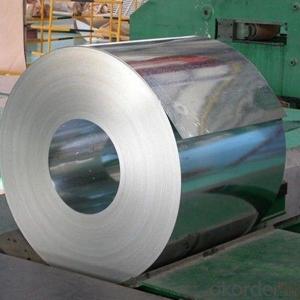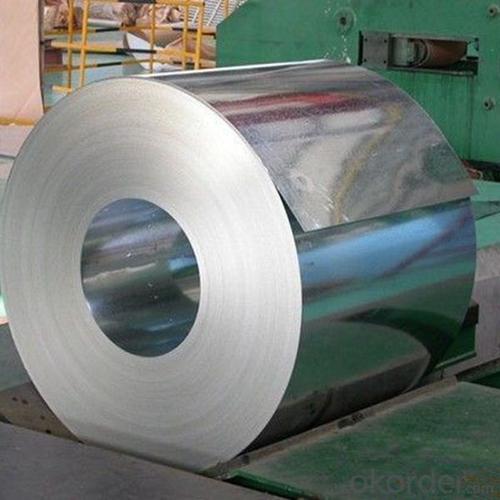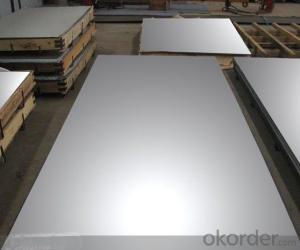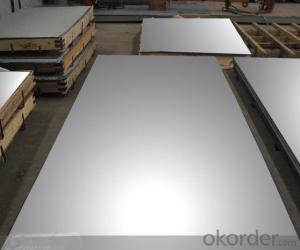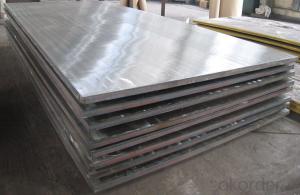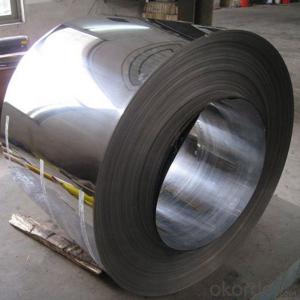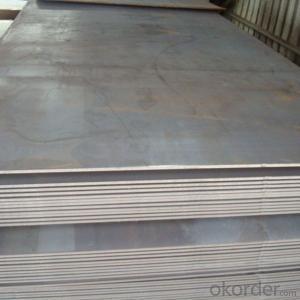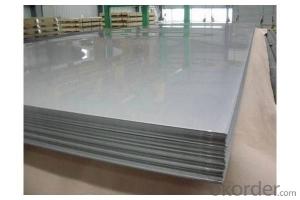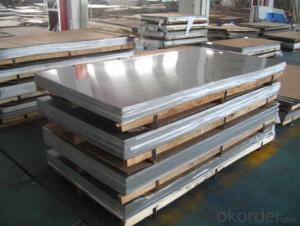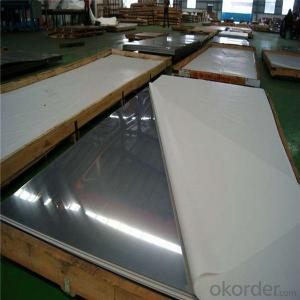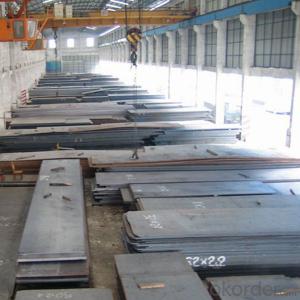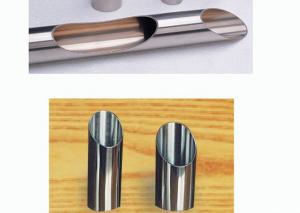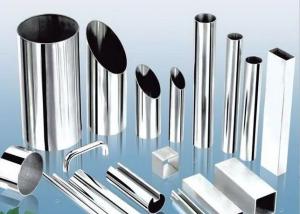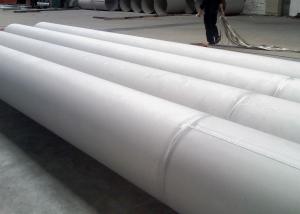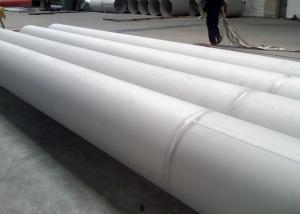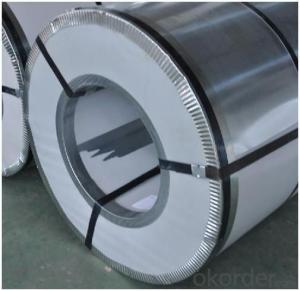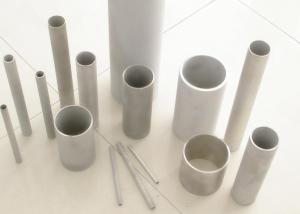201 Stainless Steel Sheets Made in China Stainless Steel Plates Sheets Price
- Loading Port:
- Shekou
- Payment Terms:
- TT OR LC
- Min Order Qty:
- 25 m.t.
- Supply Capability:
- 20000 m.t./month
OKorder Service Pledge
OKorder Financial Service
You Might Also Like
Specification
Products Description for Stainless Steel Coils/Sheets:
Product | stainless steel coils/plates/sheets | ||
Discharge Port | Any Port, China | ||
Size | Coils | Cold Rolled: | Thickness0.3-8mm,Width:280-2100mm |
Hot Rolled : | Thickness3-14mm,Width:650-2100mm | ||
Plates | Thickness2-80mm,Width:1500-3000mm | ||
Coil Weight | About 20 Tons | ||
Grade | 201,202,304/304L/304H,316/316L/316H,321/H,310S,409/L,430 etc. | ||
Technique | Hot Rolled/Cold Rolled | ||
Finish | 2B, BA, 2D, No1, No2, No4,NO.8,SB etc | ||
Edge | Mill Edge / Slitting Edge | ||
Package | In bundles, or as customer's requirement | ||
Place of Origin | Made in China | ||
MOQ | 20 Tons | ||
Technical notes:
Surface Finish | Definition | Application |
2B | Those finished, after cold rolling, by heat treatment, pickling or other equivalent treatment and lastly by cold rolling to given appropriate luster. | Medical equipment, Food industry, Construction material, Kitchen utensils. |
BA | Those processed with bright heat treatment after cold rolling. | Kitchen utensils, Electric equipment, Building construction. |
NO.3 | Those finished by polishing with No.100 to No.120 abrasives specified in JIS R6001. | Kitchen utensils, Building construction. |
NO.4 | Those finished by polishing with No.150 to No.180 abrasives specified in JIS R6001. | Kitchen utensils, Building construction, Medical equipment. |
HL | Those finished polishing so as to give continuous polishing streaks by using abrasive of suitable grain size. | Building Construction. |
Packaging & Delivery for Stainless Steel Coils/Sheets:
Packaging Detail | Standard export packing or following customer's demand |
Delivery Time | Within 30-40 days after deposit or according to the order quantity |
Detail picture for Stainless Steel Coils/Sheets
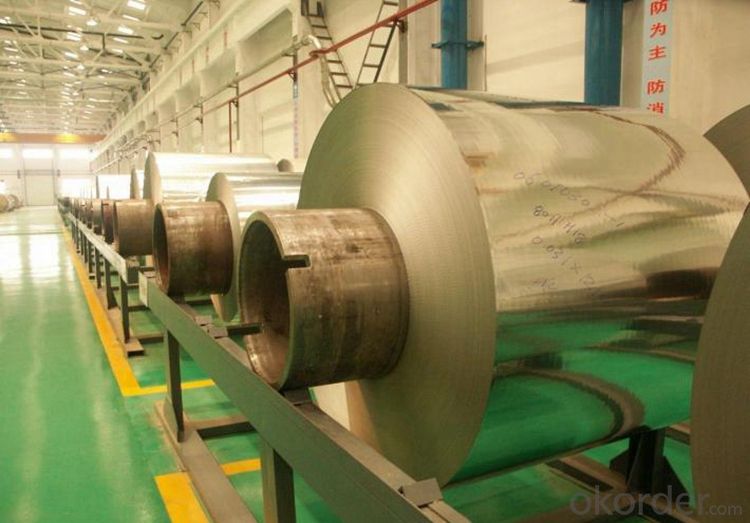
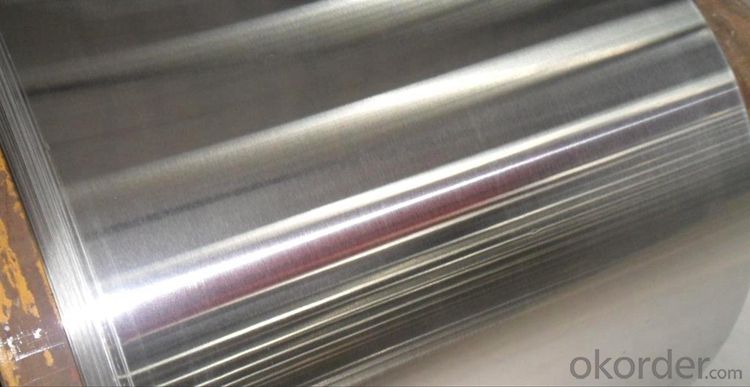
Application for Stainless Steel Coils/Sheets:
Boiler heat exchanger, machinery andpetroleum ,chemical industries, hardware fields,Food industry,construction material,kitchen utensils, building construction, medical equipment,chemical tank, pipe etc
Payment&Delivery for Stainless Steel Coils/Sheets:
Payment Terms | 100% LC at sight,or 30%TT in advance, balance against B/L copy |
Delivery Time | With 30-40 days after deposit |
Price Terms | Ex-Work, FOB, CNF, CFR, CIF,etc |
FAQ for Stainless Steel Coils/Sheets:
Q:What are the advantages of your company ?
A: We have many professionals, technical personnel, more competitive prices and best after-dales service than other stainless steel companies.
Q:Can you arrange the shipment ?
A: Sure we can help you with the shipment. We have forwarders who have cooperated with us for many years.
- Q: Can stainless steel sheets be used for countertops?
- Yes, stainless steel sheets can be used for countertops. Stainless steel is a durable and versatile material that is resistant to stains, heat, and bacteria, making it an excellent choice for kitchen countertops. It is easy to clean, maintain, and has a sleek and modern appearance. Stainless steel countertops are commonly used in commercial kitchens but are also becoming increasingly popular in residential settings due to their durability and hygienic properties.
- Q: Can stainless steel sheets be used for exterior cladding?
- Yes, stainless steel sheets can be used for exterior cladding. Stainless steel is a highly durable and corrosion-resistant material, making it suitable for various applications, including cladding. Stainless steel sheets offer excellent resistance to weathering, UV rays, and extreme temperatures, making them ideal for exterior use. They can withstand harsh environmental conditions, such as heavy rain, snow, and high winds, without deteriorating or losing their aesthetic appeal. Additionally, stainless steel sheets are available in a wide range of finishes, allowing for customization and design flexibility. Whether for residential, commercial, or industrial buildings, stainless steel cladding provides a long-lasting and visually appealing solution.
- Q: What industries commonly use stainless steel sheets?
- Stainless steel sheets are extensively used in various industries due to their exceptional properties and versatility. One industry that commonly utilizes stainless steel sheets is the construction industry. Stainless steel sheets are used for roofing, cladding, and decorative purposes, providing durability, corrosion resistance, and an aesthetically pleasing appearance. Another industry that extensively uses stainless steel sheets is the automotive industry. Stainless steel sheets are used for manufacturing body panels, exhaust systems, and various components due to their high strength, heat resistance, and corrosion resistance properties. Additionally, stainless steel sheets are also used in the production of fuel tanks and other critical components in the transportation sector. The food and beverage industry also heavily relies on stainless steel sheets. These sheets are used for fabricating food processing equipment, storage tanks, and pipelines. Stainless steel sheets are preferred in this industry due to their resistance to corrosion, high cleanliness standards, and the ability to withstand extreme temperatures, ensuring hygienic and safe food processing. The medical and pharmaceutical industries also extensively use stainless steel sheets. These sheets are used for manufacturing surgical instruments, medical devices, and equipment due to their corrosion resistance, biocompatibility, and ease of sterilization. Moreover, the energy sector, including oil and gas, power generation, and renewable energy industries, commonly uses stainless steel sheets. These sheets are utilized for constructing pipelines, storage tanks, and various equipment in these industries due to their resistance to corrosion, high temperature, and pressure. Other industries that commonly use stainless steel sheets include aerospace, marine, chemical processing, and architectural industries. Stainless steel sheets provide the required strength, durability, and resistance to harsh environments in these sectors. Overall, stainless steel sheets find applications in a wide range of industries due to their exceptional properties, making them a preferred choice for various manufacturing and construction needs.
- Q: What are the different types of etched patterns available for stainless steel sheets?
- Stainless steel sheets come in a range of etched patterns, each with its own distinctive and visually appealing design. Some popular options include: 1. The Diamond Pattern: This classic and elegant design features small diamond-shaped indentations etched onto the stainless steel surface. It is commonly used in architectural applications. 2. The Checkerboard Pattern: Resembling a checkered board, this pattern adds a modern and geometric touch to stainless steel sheets. It is often utilized in interior design and decorative settings. 3. The Floral Pattern: Incorporating floral designs etched onto the stainless steel sheet, this pattern brings an element of elegance and sophistication. It is commonly seen in luxury home decor and jewelry. 4. The Geometric Pattern: Offering a contemporary and artistic look, this pattern includes various geometric shapes etched onto the stainless steel sheet. It is suitable for both modern and traditional settings. 5. The Wave Pattern: By etching wavy lines onto the stainless steel sheet, this pattern creates a sense of movement and fluidity. It is frequently employed in architectural projects for a dynamic and visually interesting effect. 6. The Textured Pattern: With various textures like brushed, hammered, or linen finishes etched onto the stainless steel sheet, this pattern adds depth and dimension to the metal. It is ideal for interior design and decorative purposes. 7. Custom Patterns: In addition to the standard options, it is also possible to create custom patterns based on specific designs or logos. This allows for personalized and unique stainless steel sheets, often used in branding or specialty projects. Overall, the wide range of etched patterns available for stainless steel sheets provides endless possibilities for design and application. Whether for architectural, decorative, or industrial purposes, there is a pattern to suit every need and aesthetic preference.
- Q: What are the advantages and disadvantages of net drawing stainless steel users?
- Drawing process will to some extent lose the thickness of stainless steel plate, usually at 0.1~0.2mm. In addition, because the human body, especially the palm has a relatively strong oil and sweat secretion, stainless steel wire drawing board often hand touch will leave a more obvious fingerprints, regular scrub.
- Q: Are stainless steel sheets suitable for food display cases?
- Yes, stainless steel sheets are highly suitable for food display cases. They have excellent hygiene properties, as they are resistant to corrosion and can be easily cleaned and sanitized. Stainless steel is also durable and can withstand frequent use and exposure to various temperatures. Additionally, its sleek and modern appearance adds an attractive and professional look to food display cases.
- Q: How do you cut stainless steel sheets?
- Different methods can be employed to cut stainless steel sheets, depending on the sheet's thickness and the desired level of precision. Here are several commonly used techniques: 1. Manual cutting: Thinner stainless steel sheets (up to approximately 16 gauge) can be cut using handheld shears or tin snips. These tools allow for straight or curved cuts by applying pressure and slicing through the sheet. However, this approach may not be suitable for thicker sheets due to its labor-intensive nature and the potential for producing rough edges. 2. Power shears: When dealing with thicker stainless steel sheets, power shears or electric nibblers prove more efficient. These tools employ a sharp cutting blade or punch to make straight or curved cuts. They offer greater precision and require less effort compared to manual cutting methods. 3. Circular saw: Stainless steel sheets of increased thickness can also be cut using a circular saw outfitted with a carbide-tipped blade specifically designed for metal cutting. This method allows for straight cuts but may generate more noise, sparks, and heat. Consequently, appropriate safety measures, such as wearing protective goggles and gloves, should be taken. 4. Plasma cutting: Plasma cutting is commonly utilized for industrial or heavy-duty applications. This technique involves employing a high-temperature plasma jet to melt through the stainless steel sheet, generating a precise and clean cut. However, plasma cutting machines are expensive and necessitate specialized training in operation. Irrespective of the chosen method, it is crucial to prioritize safety when cutting stainless steel sheets. Always wear protective gear, such as safety glasses, gloves, and a dust mask, to safeguard against metal shards, sparks, and dust. Moreover, ensure that the sheet is securely clamped or supported to prevent any movement during the cutting process.
- Q: Are stainless steel sheets suitable for elevator floor panels?
- Yes, stainless steel sheets are suitable for elevator floor panels. Stainless steel is a strong and durable material that is resistant to corrosion, making it a suitable choice for high-traffic areas like elevator floors. It is also easy to clean and maintain, making it ideal for public spaces. Additionally, stainless steel sheets can be customized in terms of size, shape, and finish to meet specific design requirements and aesthetic preferences. Overall, stainless steel sheets offer a combination of durability, aesthetic appeal, and ease of maintenance that make them well-suited for elevator floor panels.
- Q: Can stainless steel sheets be used for elevator frames?
- Indeed, elevator frames can be constructed using stainless steel sheets. Renowned for its durability, strength, and resistance to corrosion, stainless steel proves itself as an excellent choice for numerous purposes, including elevator frames. By employing stainless steel sheets, elevator frames acquire a lasting and visually appealing structure that withstands the rigors of daily usage. Moreover, stainless steel's sleek and contemporary appearance elevates the overall elevator design, imparting a refined and fashionable allure.
- Q: What welding equipment do we need for welding stainless steel sheet and stainless steel square tube?
- 1 argon arc welding machine! If the person who has not been married, as little as possible, that thing has radiation, long time use of physiology is influential. You know what you do.2, regardless of the front and back can be, as long as it looks beautiful and practical.3, welding technology is good, it will not be ugly after welding.4, only the use of technology to make up for the lack of machinery, and then cattle B hardware, there is no good software is not good.5, welding rod, protective mask and so on.
Send your message to us
201 Stainless Steel Sheets Made in China Stainless Steel Plates Sheets Price
- Loading Port:
- Shekou
- Payment Terms:
- TT OR LC
- Min Order Qty:
- 25 m.t.
- Supply Capability:
- 20000 m.t./month
OKorder Service Pledge
OKorder Financial Service
Similar products
Hot products
Hot Searches
Related keywords
